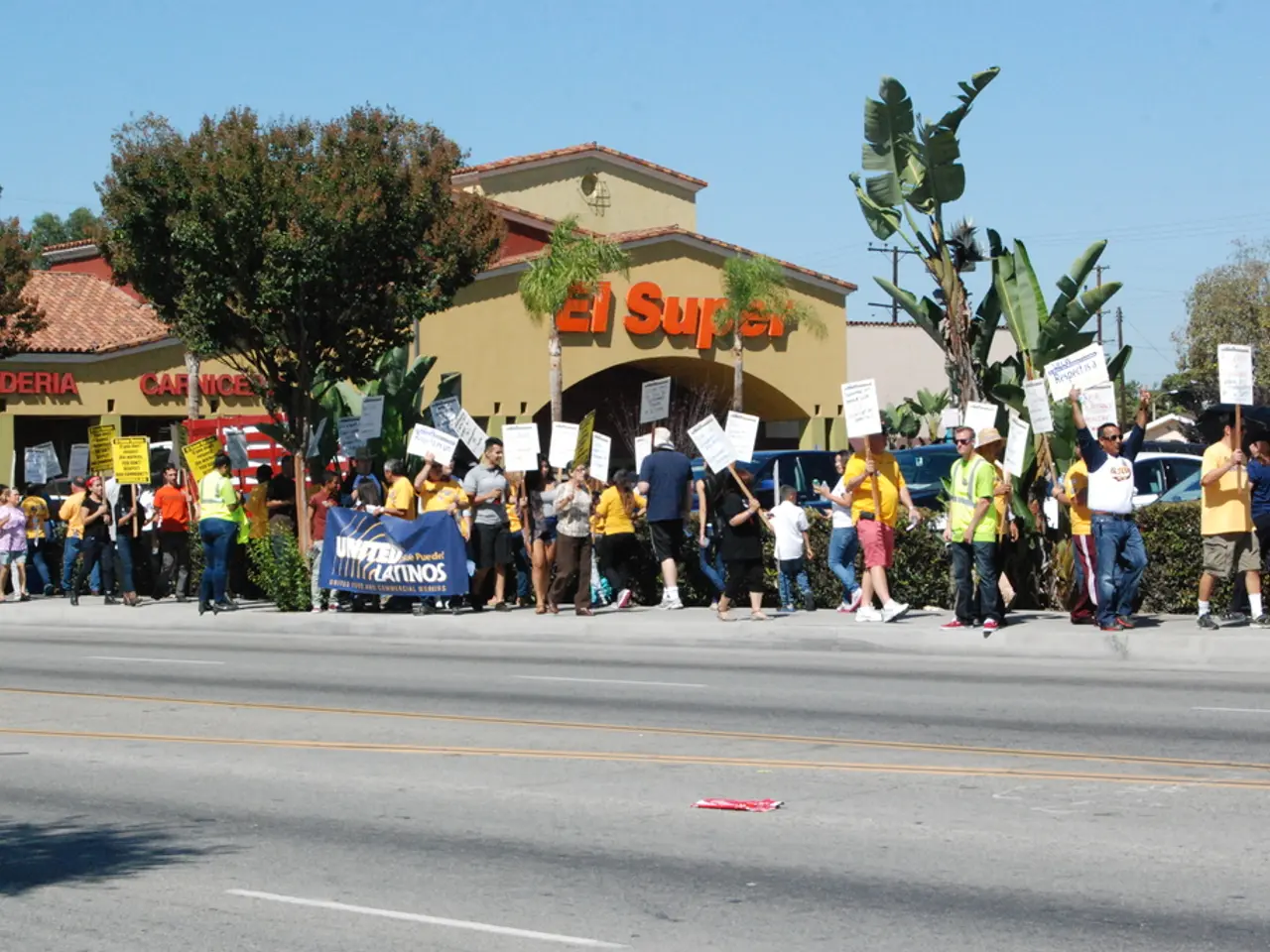Time Pressure Mounts as Dreamers Await Decision
The Deferred Action for Childhood Arrivals (DACA) program, which provides work authorization and protection from deportation to nearly 800,000 individuals, remains in a precarious state, with ongoing legal challenges and a lack of permanent legislative protection[3]. The potential expiration of this program could have severe consequences, particularly for the U.S. economy.
One of the most immediate impacts would be job losses. Without Congressional action to pass a law protecting Dreamers by the end of the year, thousands risk losing their jobs weekly—estimated at around 1,000 per week[4]. This includes individuals like Javier Velazquez, a 21-year-old entrepreneur who runs a digital marketing business, Uproot Online, that employs six Americans and helps more than 100 small businesses in the U.S. and Canada grow their digital footprint[1].
The ripple effects of these job losses could extend to important sectors such as education and healthcare. Dreamers are described as hard-working individuals who create value, leading to job creation and economic growth[2]. Multiply Velazquez's potential job loss by about 800,000 DACA recipients, and the potential for widespread job losses becomes apparent.
Economically, the potential expiration of protections for Dreamers could have severe consequences. Research indicates that ending DACA protections would wipe out a decade of positive contributions made by recipients, threatening financial independence, entrepreneurship, and educational advancement among this group[3]. The Dignity Act, a legislative proposal, projects that safeguarding immigrants, including Dreamers, could add between $3.9 trillion and $10 trillion to the U.S. GDP over 10 years, create net positive job impacts, and stabilize key industries such as agriculture, construction, and hospitality[2].
However, failing to protect Dreamers and pursuing restrictive immigration enforcement could result in losses of up to 2.6 million jobs, reduced Social Security and Medicare contributions by billions annually, and significant inflationary pressures that harm the overall economy[2].
Recent federal policy changes further compound challenges for DACA recipients. Since June 2025, new federal rules have excluded DACA recipients from eligibility for health insurance through Covered California marketplaces, forcing them to seek alternative coverage options such as Medi-Cal or off-exchange plans[1]. This may add to economic instability and access issues for this population.
Notably, the U.S. Chamber of Commerce, an organisation that represents businesses across the country, implores Congress to address the Dreamer crisis and prevent Dreamers from being forced out of their jobs, schools, and communities[1]. Companies like IBM, which employs 30 Dreamers, contributing to various roles such as software development, sales, and technical support, also value the contributions of Dreamers[1].
In Wisconsin, Sean Hackbarth, a devoted Green Bay Packers fan, writes about public policies affecting businesses, including immigration issues. He is a proponent of legislative protection for Dreamers, recognising the economic and social benefits they bring to the U.S.
In conclusion, without Congressional legislation by the end of 2025, the DACA program risks termination or drastic limitation, leading to massive job losses among Dreamers, negative economic impacts estimated in the trillions over a decade, and harmful social consequences for immigrant communities and their families[2][3][4]. The economic and social evidence strongly supports legislative protection to maintain these benefits and stabilize the economy.
- The Deferred Action for Childhood Arrivals (DACA) program, which provides work authorization and protection from deportation to nearly 800,000 individuals, is in a precarious state with ongoing legal challenges and lack of permanent legislative protection.
- The potential expiration of this program could have severe consequences for the U.S. economy, with one of the most immediate impacts being job losses.
- Thousands of individuals, including small business owners like Javier Velazquez, a 21-year-old entrepreneur, risk losing their jobs weekly without Congressional action.
- The lack of protection for Dreamers could lead to losses of up to 2.6 million jobs, reduced Social Security and Medicare contributions, and significant inflationary pressures that harm the overall economy.
- The U.S. Chamber of Commerce, an organization that represents businesses across the country, is urging Congress to address the Dreamer crisis and prevent Dreamers from being forced out of their jobs, schools, and communities.
- Companies like IBM, which employs 30 Dreamers, recognize the contributions of these individuals to various roles such as software development, sales, and technical support.
- The economic and social evidence strongly supports legislative protection for Dreamers to maintain the economic and social benefits they bring to the U.S. and stabilize the economy.






